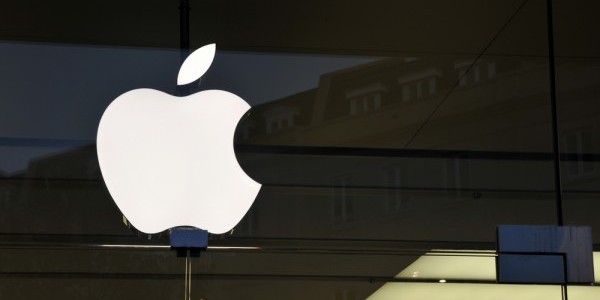Apple shareholder meeting signals the start of a new Apple

Apple's annual shareholders meeting is providing little in the way of juicy news, but there appears to be an undercurrent of change in both the statements of executives and the votes of shareholders. Could this be a sign of a change in how Apple operates? It certainly seems so.
In his first Q&A with shareholders since becoming CEO, Tim Cook yet again acknowledged that Apple has "more [cash] than we need to run the company". At close to $98 billion, it's quite the chunk of change. Cook failed to specify, however, what the company plans to do with the money, only sharing that there are "active discussions" among the board on Apple's next steps.
Apple is Primed for a Big Move
That Cook mentions this frequently raises questions about whether or not Apple is ready for something else, such as an acquisition or distributing long-awaited dividends to shareholders. The cash pile is not as big as it seems, as some is tied to overseas investments and equities, but there is still a good deal of money to play around with.
With Apple apparently set to enter the television business this year, an acquisition to give them better footing in the sector might be wise. It could also buy a host of other companies, and still have money left over -- you might remember my piece on ten companies that Apple could buy in cash from July. Its hoard has only grown since then, so the options are even greater.
Make a move, Apple. There's plenty of solid companies out there that would bolster your positions in already established businesses or open doors to new ones. There's no sense in sitting on money you don't really need.
There's another option for Apple, and it's much easier to do -- pay a dividend. I know the thought was all but considered blasphemous under Steve Jobs, but Cook seems open to it. To say he is "thinking very deeply" about doing so goes further than Jobs ever did on giving back to those investors who took a chance on Apple. That's a start.
Giving Shareholders More Control
In a rare acquiescence to the desires of investors and critics, Apple will now put unopposed directors up for a vote. Shareholders last year voted for a similar proposal despite Apple's recommendation to vote against. This seems like common sense, but for a top-down controlled company like Apple it was unthinkable.
This seems to suggest that Cook is more interested in decentralizing power under his stewardship. At the beginning of the year, I gave 10 resolutions Apple should be make in 2012. One of them was for Cook to assert his leadership, the other to decentralize power and delegate.
I took quite a bit of flak from BetaNews commenters (and Apple apologists who stumbled on our piece) on that one, but with what we've seen so far I was completely right to mention both. And guess what? They've done both. I know among some of the fanatic Apple fans it's nothing short of heresy to question the way Apple runs its business, but I am not the only one. I kind of feel vindicated after Thursday's meeting on this one.
Ignoring Foxconn
While protestors outside held up signs and chanted slogans decrying apparent worker abuses in Apple's manufacturing partner Foxconn's Shenzen, China plant, any mention of the issue was missing at the meeting. Cook did not bring it up on his own, and no shareholders asked any questions regarding this issue.
Doing so was probably a smart move. The situation is still quite fluid, and it's not clear how Apple will make out in this. As much as Apple's critics may want the company to come clean, sometimes silence is golden. All too often we see executives open their mouths, only to regret what they say and play damage control later. Let's see how this plays out first and not push Apple to make any rash moves that may make the situation worse.
Am I justifying the working conditions at Foxconn? Of course not. But at the same time, I believe a lot of the issues at Foxconn are overblown, and Apple is unfairly targeted by the media when so many companies use Foxconn for manufacturing. Yes, Apple is one of the most progressive companies in Silcon Valley but a partner's labor issues are not all its fault.
Change is in the Air
Save for the Foxconn drama, while on the exterior things seem to be the same, in the end Apple is laying the groundwork for serious change. Steve Jobs died six months ago, and we all need to stop assuming nothing will change at Apple. Much has changed in the corporate world over the past few years, and Apple's style of business was anthathemic to those best practices.
As a process man himself, Tim Cook understands this. So I fully expect Apple to operate much differently under his leadership, and modernize Apple's way of doing business. This means more pre-briefings for journalists. This means more candid comments from executives. This means more openness. Will it take some getting used to? Sure, especially for a company built on secrecy since its inception.
But the time has long past where a company can completely control the message from top to bottom. For some reason, Apple got away with it longer than any other company could. Is this the fault of the pro-Apple apologist media, as some like to put it? Maybe. But people are now asking questions, and Steve Jobs is not there anymore to deflect them with the Reality Distortion Field.
Change is coming to Apple.
Photo Credit: 1000 Words / Shutterstock